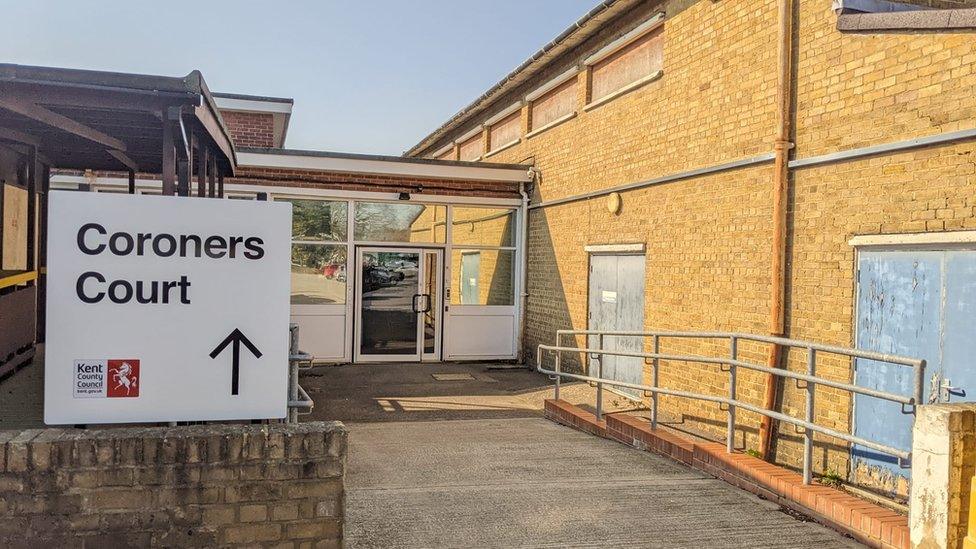Hayley Smith: Risk of future anorexia deaths, coroner warns
- Published

Hayley Smith was being treated for severe anorexia nervosa at The White House clinic in Ipswich
A coroner has warned more people could die as a result of NHS miscommunication after the death of a woman from complications caused by an eating disorder.
Hayley Smith, from Sturry, Kent, died at Medway Maritime Hospital in 2019.
The 27-year-old had been receiving treatment for anorexia nervosa at a specialist clinic in Ipswich, Suffolk.
He mother, Ann, said she hopes "changes will be enforced" to ensure NHS bodies share information.
Assistant coroner Catherine Woods said: "In my opinion, there is a risk that future deaths could occur unless action is taken."
The coroner added, in a prevention of future deaths report which was published late on Wednesday: "If information (had) been shared between different health care organisations, particularly crucial information about Hayley's Community Treatment Order (CTO), it is highly likely she would still be alive today."
Ms Smith's mother, Ann, said: "We miss Hayley every day and only hope that changes will be enforced so that medical staff can easily see information that will save the lives of other people who face similar issues."

If you are affected by any of the issues in this story, you can find support on the BBC Action Line.

Evidence given at an inquest into Ms Smith's death, which concluded last March, revealed that communication between care agencies was inadequate, as they could not access crucial information.
Each of the organisations were "reliant" on being copied into correspondence or on specific information being shared by others, the inquest was told.
The White House, a specialist residential eating disorder clinic in Suffolk where Ms Smith was being treated, was not sent copies of clinical correspondence and at the time did not have access to GP records.
While on leave from the clinic, Ms Smith suffered a cardiac arrest on Christmas Day in 2019 while visiting family in Kent. She died four days later.
The inquest heard Ms Smith had not had a blood test for three months before her death.
The jury concluded she died after having a cardiac arrest and severe hypoglycaemia - both complications of anorexia nervosa.
The Department of Health and Social Care said it is aware of the prevention of future deaths report, and shared it's sympathies to Ms Smith's family.

Follow BBC South East on Facebook, external, on Twitter, external, and on Instagram, external. Send your story ideas to southeasttoday@bbc.co.uk, external.
Related topics
- Published8 March 2022

- Published10 March 2022
